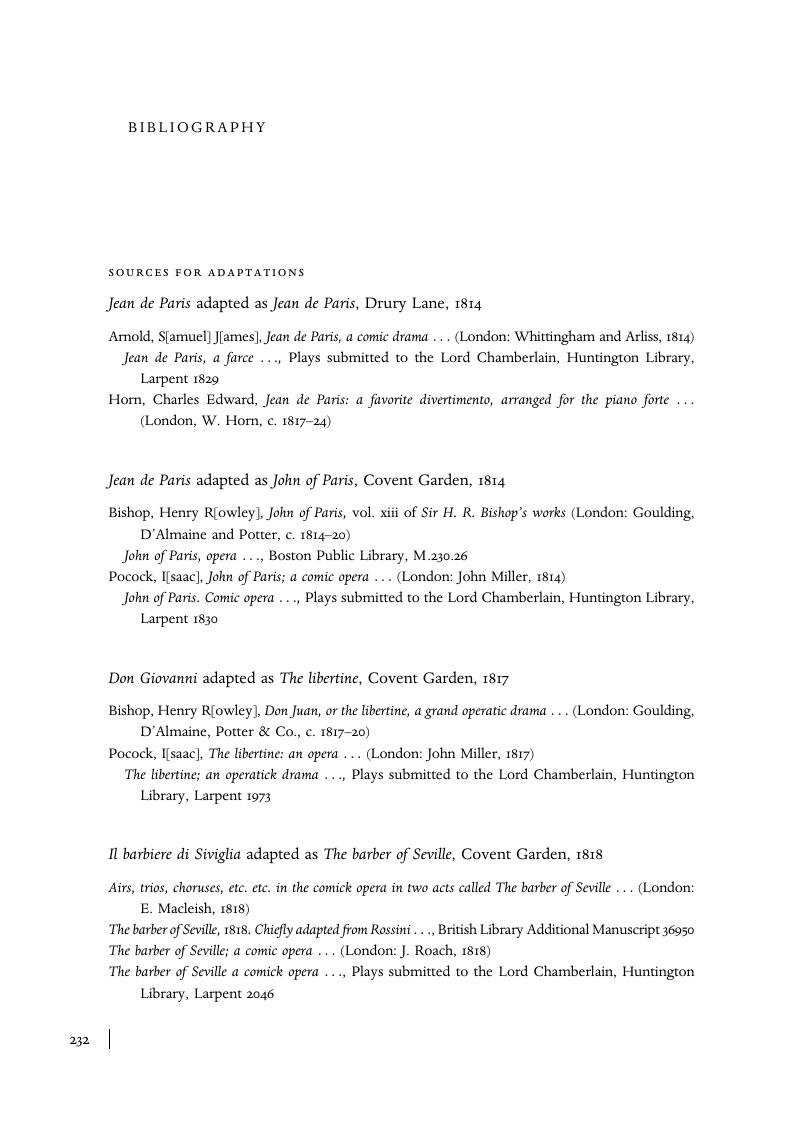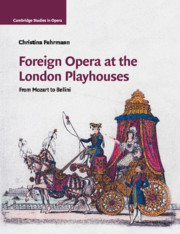Book contents
- Foreign Opera at the London Playhouses
- Cambridge Studies in Opera
- Foreign Opera at the London Playhouses
- Copyright page
- Contents
- Figures
- Music examples
- Book part
- Introduction
- 1 A tale of two Boieldieus
- 2 The pippin and the pineapple: Rossini and Mozart
- 3 ‘The flood-gates of foreign music’:Der Freischütz
- 4 The search for Weber’s successor
- 5 Mozart and Rossini revisited
- 6 Grand opera: competition and copyright
- 7 Of foreigners and fidelity
- Book part
- Book part
- Notes
- Bibliography
- Index
- References
Bibliography
Published online by Cambridge University Press: 05 October 2015
- Foreign Opera at the London Playhouses
- Cambridge Studies in Opera
- Foreign Opera at the London Playhouses
- Copyright page
- Contents
- Figures
- Music examples
- Book part
- Introduction
- 1 A tale of two Boieldieus
- 2 The pippin and the pineapple: Rossini and Mozart
- 3 ‘The flood-gates of foreign music’:Der Freischütz
- 4 The search for Weber’s successor
- 5 Mozart and Rossini revisited
- 6 Grand opera: competition and copyright
- 7 Of foreigners and fidelity
- Book part
- Book part
- Notes
- Bibliography
- Index
- References
Summary

- Type
- Chapter
- Information
- Foreign Opera at the London PlayhousesFrom Mozart to Bellini, pp. 232 - 249Publisher: Cambridge University PressPrint publication year: 2015



